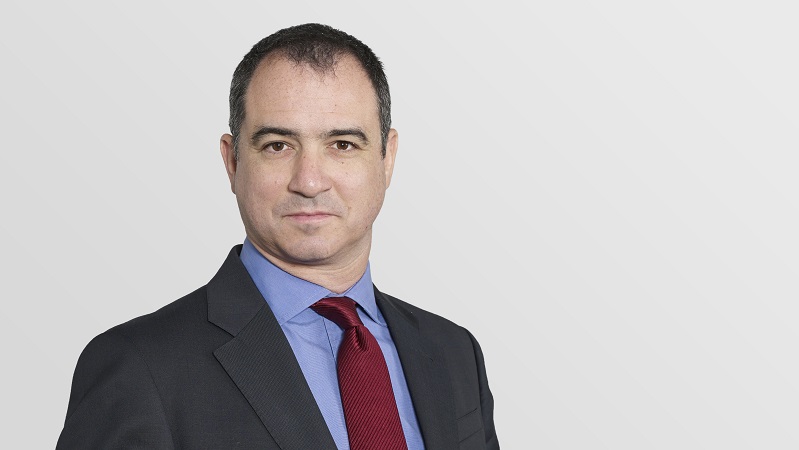Funds formerly run by Mark Barnett have been named and shamed in Invesco’s value assessment which found £23bn worth of funds guilty of failing to beat their benchmarks or deliver on their investment objectives.
Invesco used a traffic light system to evaluate funds across seven key areas of value such as performance, costs and share class units, with green representing “no areas of concern” and red meaning a fund “has an indicator of not delivering value”.
For performance, 10 out of its 54 UK funds were given a red score for outperforming a group of similar funds less than 50% of the time. Performance for most funds was measured on a five-year rolling basis, while absolute return funds were judged over a three-year rolling period.
The laggards represent around £23.1bn in assets under management, and include the largest fund in Invesco’s stable, the £8.5bn Global Targeted Returns fund.
This is nearly double the £12.7bn in assets held by the 30 funds that consistently beat their benchmarks 75% or more of the time.
Invesco funds flagged for not delivering value based on performance
| Fund | Size (as at 31 December 2019) |
| Invesco Asian Equity Income fund | £37m |
| Invesco Corporate Bond fund | £3.7bn |
| Invesco European Smaller Companies fund | £124m |
| Invesco Global Ex UK Core Equity Index fund | £46m |
| Invesco Global Targeted Returns fund | £9.5bn |
| Invesco High Income fund | £5.7bn |
| Invesco Income fund | £2.6bn |
| Invesco Japan fund | £248m |
| Invesco Latin American fund | £125m |
| Invesco US Equity fund | £307m |
Source: Invesco value assessment 2019
Invesco’s fund board said the remaining 14 funds outperformed their targets “but not as consistently as we would have liked”.
Barnett’s funds spotlighted for poor performance
The Invesco High Income fund and Income funds, previously run by Barnett, were the second and fourth largest funds called out for consistent underperformance in the report.
The Invesco High Income fund, which has shrivelled from £5.7bn to £3.4bn since December, has lost investors 36.6% in three years compared with the IA UK All Companies sector which is down 8%. Invesco Income, which now stands at £1.5bn, is down 35.8% over the same time period. Both are down 30% on a five-year view versus the average sector gains of 6%.
The board said poor performance was down to the funds’ valuation style being out of favour, overweight positions in domestic stocks, which have suffered post-Brexit, and Barnett’s “disappointing stock selection”, flagging his significant holdings in Provident Financial, British American Tobacco, Capita and Burford Capital which have all seen their share prices plunge in recent years.
Barnett was shown the door in mid-May, following a review of the UK equities desk by newly-minted CIO Stephanie Butcher. Ciaran Mallon and James Goldstone have been named as his replacements on the Invesco High Income and Income funds.
The board explained the changes had been made to improve the consistency of performance going forward but stressed the funds would be “very closely monitored”.
> See also: Invesco faces long road stymying outflows despite end of the Mark Barnett problem
It gave both funds top marks on five out of the six remaining areas of value, including on fees where it said Invesco High Income charges of 0.92% were in line with the average charges of 0.87% on the Z share class.
Other managers ousted
In addition to booting Barnett from his income mandates, managers on the Invesco European Smaller Companies fund, US Equity fund and Global Equity fund, which received an amber rating for performance, had been replaced this year, the board said.
Charges were cut across 10 funds by an average of 0.11% from 1 April, including two of the biggest laggards – Invesco Japan and the £3.4bn Corporate Bond fund, run by Paul Causer and Michael Matthews.
In addition 107,000 clients had been automatically moved to a cheaper share class between March and May 2020.
Chair of the board of Invesco Fund Managers Doug Sharp said changes had been identified and implemented swiftly.
“Our conclusion is that overall, our 54 funds do provide value for our investors,” Sharp said. “However, there are a small number of areas where we believe we are operating below the high standards you would expect from us.
“For these funds we have a clear improvement plan in place and will continue to monitor and take action until they deliver good value. This is not a one-off exercise for us, but an ongoing focus to make sure we are serving you to the very best of our ability in a way which provides for a fair and transparent exchange of value between us.”











